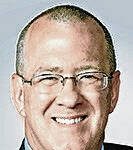INDIANAPOLIS — Just before President Barack Obama and Indiana Gov. Mike Pence delivered the State of the Union and the State of the State speeches, four former leaders in Congress floated an intriguing idea.
Among them was former U.S. Sen. Richard Lugar, R-Indiana. The others were Lugar’s old colleagues in the Senate: Democrat Carl Levin from Michigan, Republican Trent Lott from Mississippi and Democrat Tom Daschle from South Dakota.
In a column that appeared in Politico, this foursome with more than 125 years of legislative experience suggested a summit between the president and the leaders of the Democratic and Republican caucuses in the Senate and the House of Representatives always should precede the State of the Union.
Lugar, Levin, Lott and Daschle said such a meeting might reduce the partisanship that has accompanied State of the Union addresses for at least the past four presidencies. It also could ease some of the gridlock that plagues the federal government.
It’s an idea worth exploring — and not just for the valid reasons the four former senators lay out.
One reason our government at the federal and state levels has become so ineffective and mean-spirited is that too many citizens have ill-informed notions of how government works. That often means they have unrealistic expectations about what our leaders — particularly our presidents and our governors — can accomplish.
Here in Indiana, the State of the State address made that point.
For months, Hoosiers waited to find out what our governor’s position would be on adding protections for lesbian, gay, bisexual and transgender citizens to the state’s civil rights laws. Pence pledged he would make his views on the subject known during the State of the State.
The moment came and fizzled.
The governor said during the speech that he wanted Hoosiers to be nice to each other and at the same time honor the state’s constitution. The response to this bit of Pence puffery was harsh.
But an argument can be made that he didn’t have many other options.
In Indiana, any governor’s ability to influence the lawmaking process is limited. The state constitution grants the Hoosier chief executive one of the weakest vetoes in the country. A simple majority in both chambers of the Indiana General Assembly can override a governor’s “no,” which makes a veto less a laying-down of the law and more a polite request to the legislature to please, please, pretty please reconsider.
Even though we Hoosiers focus most of our attention on the governor’s office, the real power is in the House and Senate.
The same dynamic, in less stark terms, plays out with the federal government.
While we see the White House as the center of American government, the founders didn’t see it that way.
They pretty clearly intended the legislative branch to be more powerful than either the executive or judicial branches. Neither presidents nor Supreme Court justices can remove members of Congress from office, but Congress has the power to impeach and remove from office both presidents and judges — a definite indication that our founders wanted legislators to have the whip hand in disputes.
This misunderstanding of where power lies creates fantasies about what presidents can do.
Donald Trump and other Republican presidential hopefuls can pledge they are going to build a wall along the Mexican border, but they won’t be able to lay a single brick without cooperation from Congress. Similarly, Hillary Clinton and Bernie Sanders can promise to make at least a portion of college education free for all Americans, but it won’t happen unless lawmakers get on board.
The greatest power presidents and governors have is that of persuasion, but that tool too often is used to persuade the public to put pressure on legislators, which tends to make lawmakers resentful.
The result is a political system that plays out like a real-life Hunger Games — win or be killed.
It doesn’t have to be that way. Our system of government was set up to be a means by which we resolve our differences, not exacerbate them.
The model that would get us back to that original intent would be one that encourages consultation and collaboration.
Dick Lugar and his old colleagues from the Senate understand this.
That’s why their idea is one worth considering.
John Krull is director of Franklin College’s Pulliam School of Journalism, host of “No Limits” WFYI 90.1 Indianapolis and publisher of TheStatehouseFile.com, a news website powered by Franklin College journalism students.



